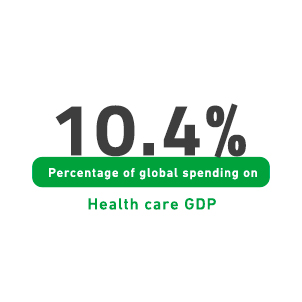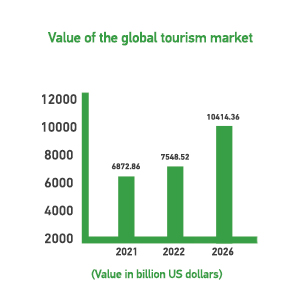Mashroo3k Company has provided a feasibility study for an autism care center project in the Sultanate of Oman, ensuring the highest profitability and the best payback period through a series of precise studies on the Omani market size, analyzing competitors’ strategies, and offering competitive pricing.

Autism, also known as Autism Spectrum Disorder (ASD), is a developmental disorder that typically appears in children before the age of three. It affects how a child speaks, behaves, and interacts with others. There are various types of autism, and its symptoms can vary greatly from one child to another. Given that autism is a complex and challenging condition with no definitive cure, many families turn to autism care centers. These centers provide specialized educational and developmental services tailored for individuals with autism, as well as rehabilitation programs aimed at integrating them into society and the workforce.<br>”Mashroo3k” Company offers investors interested in establishing an Autism Care Center project in the Sultanate of Oman a set of specialized feasibility studies. These studies are based on updated databases specific to the Omani market, helping to ensure the project’s success, achieve the highest possible profitability, and secure the best return period.



Collaboration between service providers, patients, and parents.
Services are provided to all without discrimination.
Provision of accredited educational programs.
Offering continuously updated rehabilitation programs.
Availability of qualified educational specialists.
Executive summary
Study of project services/products
Market Size Analysis.

The Healthcare Sector in the GCC Countries
“Mashroo3k” company presents some important indicators and key insights for those interested in investing in the healthcare sector and its projects across the GCC countries:
The total number of hospitals in the GCC countries is 802, according to the latest statistics. The public sector accounts for 58.9%, while the private sector accounts for 41.1% of the total number of hospitals.
Over 61% of medical doctors are based in Saudi Arabia.
Compared to other GCC countries, the UAE recorded the highest percentage of medical doctors in the private sector at 64%. Bahrain came next with 44.8%, and Qatar ranked third with 27.1%.
In comparison with other GCC countries, Kuwait recorded the highest percentage of medical doctors in the public sector at 79%, followed by Oman at 74.6%, and Saudi Arabia at 71.6%.
In Saudi Arabia, it is expected that the annual spending on digital health infrastructure will increase from $0.5 billion per year to $1.5 billion by 2030.
The GCC region has about 700 healthcare projects at various stages of development, valued at approximately $60.9 billion. These projects include hospitals, clinics, and research centers. Notably, there are 264 projects under construction, valued at $24.7 billion.
Throughout the life of “Mashroak,” which has supported entrepreneurs and investors, the company has developed a true belief in the importance of the healthcare sector and its pivotal role in economic development and the prosperity of nations. Based on this belief, “Mashroak” decided to present some key insights for anyone interested in investing in this sector and its projects in the GCC region:
Healthcare spending in the GCC countries is expected to reach $104.6 billion in 2022, up from $76.1 billion in 2017.
The average healthcare inflation in the GCC countries is expected to drop to 4% in the coming years.
Due to the anticipated increase in the number of patients, GCC countries will require a clinical capacity of approximately 118,295 beds.
Artificial Intelligence (AI) is likely to represent 30% of hospital investments in the GCC countries from 2023 to the end of 2030.
The pharmaceutical manufacturing market in the GCC countries is expected to grow to a value between $8 and $10 billion.
The consumer goods manufacturing market in the GCC countries will flourish from 2025 to 2030, with its market size expected to reach $30 billion.

According to United Nations reports, the world population is expected to reach 8.5 billion by 2030, and by 2050, the population is projected to rise to 9.7 billion. This population increase will certainly lead to a higher demand for healthcare services; therefore, Mashroo3k recommends investing in this vital sector.
It is worth noting that global healthcare spending is expected to rise by 3.9% annually during the period from 2020 to 2024, which is significantly higher than the 2.8% growth rate recorded during the 2015 to 2019 period.
Furthermore, the number of hospital beds worldwide is 2.9 beds per 1,000 people, and the number of doctors per 1,000 people is 1.8. As for nurses and midwives, the number stands at 4 per 1,000 people. These numbers are considerably lower than required; hence, there is a pressing need to increase investments in the healthcare sector to meet the growing demand for healthcare services.
Globally, technological advancements in the healthcare sector have played a key role in improving medical services, significantly improving survival rates and the quality of life over the past decade. Experts predict that the global healthcare services market will grow from $6,872.86 billion by the end of 2021 to $7,548.52 billion by the end of 2022. By 2026, the healthcare services market is expected to experience significant growth, with its value reaching $10,414.36 billion, at a compound annual growth rate (CAGR) of 8.4% during the forecast period from 2022 to 2026.